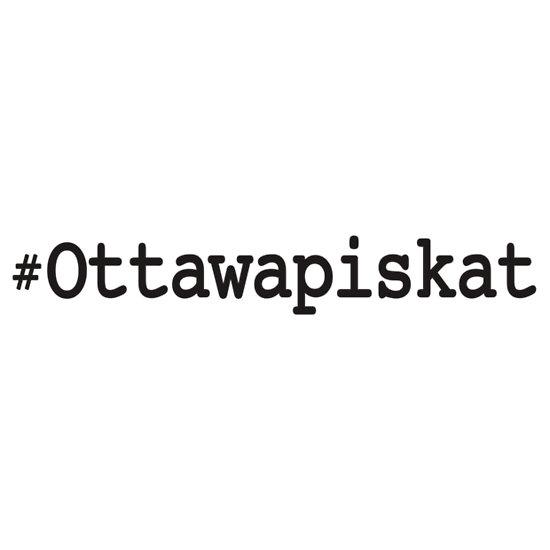Please support our coverage of democratic movements and become a supporting member of rabble.ca.
Between June 21 and July 1 — National Aboriginal Day to Canada Day — we’ll be featuring a series of articles examining and critiquing the uses of Canadian identity, the resurgence of Indigenous movements for justice, and the ways in which activists and thinkers across these lands are addressing these fundamental questions. This feature by David P. Ball was originally published in Windspeaker, Canada’s National Aboriginal News Service.
With Ottawa embroiled in a mushrooming number of financial embarrassments, observers across Indian Country are raising their collective eyebrows over the Conservatives’ focus on alleged First Nations improprieties.
From the arrest of Canada’s ex-spy watchdog on corruption charges on May 27, to swirling suspicions around Senator Pamela Wallin’s $350,000 travel expenses, and a $90,000 cheque cut by the Prime Minister’s since-resigned chief of staff to cover Senator Mike Duffy’s falsely claimed P.E.I. residence as his primary home, many are accusing the government of a double-standard when it comes to Aboriginal transparency.
Even the country’s most outspoken advocate for increased accountability on reserves — labeled a whistle-blower by Conservative lobby groups and a turncoat by her critics — said the recent scandals make a “mockery” of demands to open up band council budgets to scrutiny.
“I am just shaking my head … about the Ottawa scandal,” said Phyllis Sutherland of Peguis First Nation, whom Conservatives honoured when announcing their new fiscal transparency law in Winnipeg on March 27. “Sure makes a mockery of what they are calling for with chiefs and council.”
“All levels of government should be held accountable to the people they serve, whether it’s federal officials, or chiefs and council.”
Indian Country’s response to the scandals, which also include the government’s admission this year that it could not account for more than $3 billion in anti-terrorism funds, and a court rejecting convicted Senator Raymond Lavigne’s appeal of a six-month jail sentence for fraud and breach of trust on June 14, has emboldened a bitter sense of humour amongst observers.
“I was asking folks if ‘white people’ are really ready for self-government, given the scandals in Ottawa,” quipped Ernie Crey, senior policy advisor at Stó:lö Tribal Council in B.C.
Although sarcastic, Crey’s comments resonate with a simmering outrage over Aboriginal leaders being stereotyped as corrupt and greedy, a common Conservative allegation that occasionally leads to columnists pronouncing Aboriginal people unfit for autonomy.
The National Post‘s Christie Blatchford summed up this line of argument in this way: “Some First Nations haven’t a clue how to govern themselves,” she wrote in 2011. “After generations of learned helplessness, people have become genuinely helpless.”
“As a Native friend of a friend always says, that ‘the chief’s driveway is always paved.'”
For Crey, now that today’s fiscal scandals have reached Prime Minister Stephen Harper’s office itself, generalizations about Aboriginal people seem even more comical if one turned the tables and issued pronouncements about White culture’s ability to self-govern.
“This government has attempted to paint Aboriginal leaders as spendthrifts in need of close scrutiny and guidance,” Crey said. “Harper’s party came to power posturing as the new sheriff ready to clean-up the town. They promised to rid Ottawa of corruption and to govern in an open way. Instead, they are both secretive and every bit the failure of previous governments.”
Other commenters took aim at Auditor General Michael Ferguson’s May 1 revelation that nearly one-quarter — $3.1 billion — of federal anti-terrorism funding pumped into Canada’s Public Security and Anti-Terrorism Initiative after Sept. 11, 2001 was completely unaccounted for.
“It’s important for there to be a way for people to understand how this money was spent,” Ferguson said at the time. “And that summary reporting was not done.”
University of Manitoba Native Studies professor Peter Kulchyski, whose 2013 book Aboriginal Rights are not Human Rights is billed as a “defence of Indigenous struggles,” said that even the explosive Senate scandal is “paltry” compared to the lost terrorism billions.
“How many houses could have been purchased, or caregivers paid, or programs funded?” Kulchyski said. “Does anyone feel more secure to know that the Canadian security apparatus is apparently rife with corruption?”
“If it were a First Nation, all the talk would be about corruption, inefficiency, improper management; they’d get put into receivership. So why not have a First Nation put the Harper federal government into receivership? They could take over the financial management for a limited period, say 10 years. I doubt if they could do worse.”
Some argue the scandals facing Ottawa are the result of a few “bad apples,” or unclear receipting rules. But their severity is underscored by a series of criminal investigations — including the May 27 arrest of Arthur Porter, former head of the Security Intelligence Review Committee, who faces charges of laundering the proceeds of crime and conspiracy to commit fraud.
Police are also investigating domestic and sexual assault charges against ex-Conservative Senator Patrick Brazeau — an outspoken Aboriginal critic of band leadership, who is on paid leave pending trial — as well as Harper’s chief of staff Nigel Wright’s $90,000 “gift” to Senator Duffy.
Whether the current scandals hurt the Conservatives’ fiscally responsible image in the long-run has yet to be seen. But what is certain is that they have resurrected the types of Twitter sarcasm that surfaced this winter, when attacks on hunger-striking Attawapiskat First Nation Chief Theresa Spence were rebuffed with the #Ottawapiskat hashtag, mocking “Chief” Harper’s regime as though Canada were a reserve.
“I am not sure about others,” Crey said, “but I think this type of conduct bears a startling resemblance to the business practices of the Montreal mob.”
“While Ottawa is awash in scandal, Harper’s government is out-chiefing the hell out of the Indians.”
David P. Ball is a reporter and photojournalist in Vancouver, on unceded Coast Salish land. His website is www.davidpball.net. On Twitter: @davidpball.
This article was originally published in Windspeaker and is reprinted here with permission.



